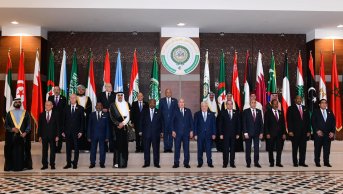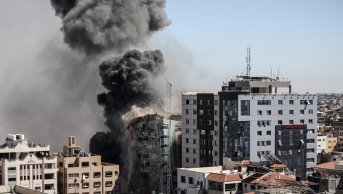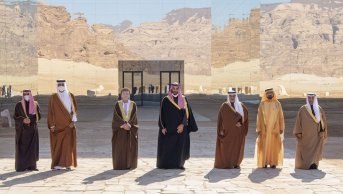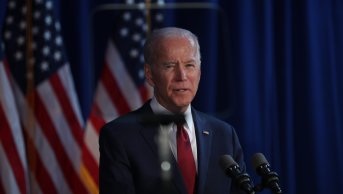The Afrin Operation and Its Aftermath
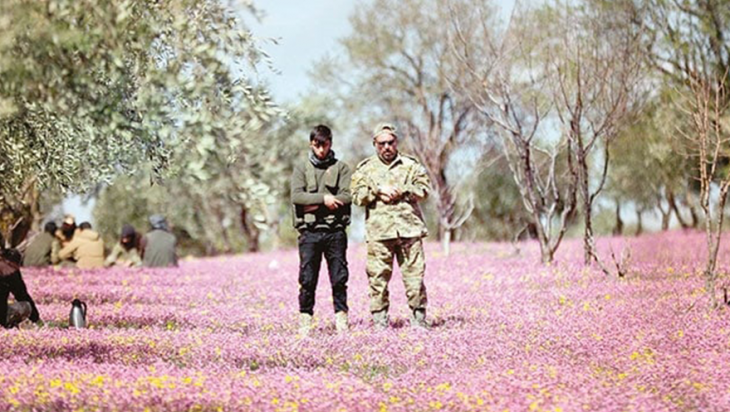
When Turkey had to enter Idlib and Afrin to break the siege on her southern border seven months ago, we expressed the need to enter initially into Idlib so that the ground would be prepared and enough time gained for Afrin. For, in those days, PYD-YPG’s fight against DAESH was ongoing. The Afrin operation would then be interpreted as direct support to DAESH. Things evolved as we anticipated, and after taking the required measures in Idlib, Turkey launched the Afrin Operation about two months ago. The Operation has been proceeding carefully and successfully and will soon end in the city center of Afrin.
After Operation Olive Branch was announced by the Turkish President, several circles, as well as media organs in Turkey, managed to find different excuses to oppose such a serious national cause and struggle for existence. The PYD’s resistance points weakened in the operation, especially after the fortification line in the border areas, filled with concrete shelters and built with the support of the USA, was broken and the control of the high hills was seized. The Turkish army and the Free Syrian Army quickly advanced to the center of Afrin.
In this process, many lies voiced by the USA have now been exposed. For instance, those who initially denied that the PKK and PYD were the same things, over time, confessed this very fact. In addition to this, the allegation that only the PKK-PYD proved successful in the fight against DAESH, even more than Turkey, collapsed. Receiving enough support, the Free Syrian Army (FSA) was seen to succeed against DAESH and the PKK. (If the USA gave support, the FSA would have toppled the Assad regime in 2013 at the latest, yet they did not.) The technical and tactical superiority of the Turkish army did not go unnoticed in the fight against more than 3 thousand terrorists.
Although the USA captured a third of the Syrian territory through the PKK-PYD, this region corresponds to half of the country’s economy. The area east of the Euphrates is a very important region with its oil, natural gas, streams, power plants, and agricultural fields. The Assad regime will have more difficulties in holding onto this region. The USA responded very harshly to the move made by Iranian-backed regime forces to take this region back from the PKK-PYD and caused hundreds of deaths. Indeed, the US officials have already declared that they are permanently in the country. With the 10 military bases it has established in the country, the USA has also shown how much importance it attaches to Syria and that it is permanently there.
Turkey sees the line of terror created by the PKK, the US’s proxy warriors, in the southern border as a vital threat to her existence. To eliminate this threat, Turkey entered Afrin by developing a common understanding and cooperation with Russia. The forces that empowered the PKK persuaded Barzani last year to take a step that would damage Turkey’s interests in northern Iraq. In fact, Barzani was promised that the petroleum would be transported first to Israel through this PKK corridor (Rojava) and then to the world markets and thus, was reportedly encouraged to hold the referendum. This project was doomed to fail due to the cooperation between the central governments of Turkey, Iran and Iraq and a lack of international support. However, Turkey was forced to take matters into her own hands regarding the destruction of the PKK corridor. Firstly, before the US-backed PYD forces entered there, Turkey liberated the Al-Bab region from the DAESH as a result of the Operation Euphrates Shield. This operation took a long time because the coordination among FSA forces had not been well established. In addition, DAESH did not resist the PKK in some places, probably due to the US guidance or pressure while it seriously resisted against the FSA and the Turkish army. And yet, this resistance was broken and domination was achieved in the region. In the region where life has begun to normalize, a solution is sought for the extreme acts of the militias previously armed.
Some advantages of Operation Olive Branch have already been seen. Firstly, the experience gained in the area of the Euphrates Shield operation was useful in Afrin and the forces managed to progress faster and more regularly from many points. Secondly, it was more clearly understood that, the PKK-PYD, the power of which was exaggerated through propaganda, had no chance to resist the strength of the Turkish army. The PYD-PKK’s request for help from the Shia militia and the Assad Regime at the end of the first month destroyed the ‘great resistance, strong organization’ propaganda. On the other hand, the closeness between Assad, the bloodiest administration in recent years, and the organization which made the propaganda, as if it were the spokesperson of the oppressed Kurds, has helped to reveal the real picture. The operation also shed light on the fact that Turkey’s war capacity and technology have reached important levels. In this operation, unmanned aerial vehicles (UAVs) were used very effectively. The quality and capacity of UAVs and other combat vehicles, which flew through the air over Afrin, were also tested with this operation. In line with the attention Turkey paid throughout the operation to limit the effects of its military operation to the targeted elements, this technical superiority has been very effective in preventing civilian losses, as well as providing opportunities for effective operations against PKK targets.
Perception is as important as fact
Willing to drive Turkey, which pays maximum attention to avoid civilian casualties, into the corner and present itself as a victim, the PKK has had difficulty in finding propaganda material and content. It became known later on that the organization used old war and earthquake pictures to defame Turkey. Nevertheless, the PKK-PYD propaganda machine has not collapsed yet. The PKK tries to present Turkish intervention as a war against the Kurds and attempts to earn sympathy from other Kurds because almost all the world media approach the PKK with sympathy. Even the news agencies and media tools of Russia, which has come to terms with Turkey, broadcast on behalf of the PKK. Today, when perception is as important as facts, Turkey should make more efforts in this regard.
However, the risks of the operation are not limited to this. In the beginning of the offensive, the pictures that FSA fighters shared from the battlefield caused resentment in Afrin and abroad, and were used by the PKK as a counter-propaganda tool. Although serious precautions were taken later on in this matter, damage still occurred. Today, personal movements and errors can cast a shadow on the whole operation. The PKK-PYD effort to show Turkey as an enemy of the Kurds and the propaganda that Turkey would displace all the Kurds living in Afrin by settling down the Syrian refugees in the city disquiet both those in Afrin and people in other regions. The PKK propaganda is also effective with the anti-PKK Kurds. Being an important test for the areas in the east of Manbij and the Euphrates, Operation Olive Branch offers great opportunities. Today, the operation and the siege of Afrin continue on the one hand, and, on the other hand, the process of mine-clearance and liberating the captured areas from terrorists goes on. In the meantime, public structures need to be created quickly in liberated areas. The creation of several commissions and structures which are to consist of local Kurdish community representatives that have not been very friendly with Turkey so far may prove useful. It will be very useful if the local people feel and see that the administration will be left to them. When Turkey had good relations with Barzani, she backed up the groups close to the latter (Kurdish National Council) against the PYD in Syria. However, as the relationship was strained (worsened) after the referendum, this Council opposed Turkey’s operation, and due to Barzani's inability or malicious intentions, the PKK has increased its activities and propaganda in northern Iraq. In the upcoming period, priority should be given to the Kurdish figures that love Turkey, have taken refuge here in Turkey as a result of the civil war or repression by the PKK and act knowing that Turkey is not against the Kurds. To this end, even FSA units can be formed by local Kurdish groups. In this way, the FSA’s revenge actions because of the previous conflicts in this region can also be prevented.
After the liberation of Afrin from the PKK militia, it is necessary to quickly establish a civilian structure in the city. The soldiers, the main task of which is to fight, should not be expected to rule civilians or even to rule them well. If a decent order is established in Afrin, it will be very easy to move to the east of Euphrates. Indeed, the Afrin experience that would constitute a sample will help the acceptance of Turkey in other regions. The distribution of aid to Afrin should not be conducted under FSA control, but under our official institutions and non-governmental organizations, which have gained a lot of experience in this regard.
Normalization process
Methods should be developed to stabilize the region and to settle Afrin people who have been dispersed within or outside of Syria in the liberated areas. For example, news should be spread about the conditions of the villages cleared from the PKK and the return of the settlers to the villages. This will also help the civilians leave the city center of Afrin. Likewise, the mines set by the PKK in the villages should be cleared so that the residents will not hesitate to return. A two-week siege would be enough to lead to an evacuation of Afrin, and the PKK-PYD would not be able to use people as a human shield for any very long period of time. In addition, the activities of the radical Salafist groups that emerged and gained ground in response to the PKK in the liberated areas should not be allowed as these trends may lead to religious terrorism as a result of the radicalization of the people in the long term.
Turkey’s fight against the PKK is likely to continue to be a major subject of dispute with the USA. The siege of Turkey by the PYD-YPG that has been empowered under the pretext of combating DAESH has been partially broken in Afrin. Some progress has already been made with former Foreign Minister Tillerson on the subject of Manbij. However, it can be estimated that we will have a more difficult process in general with the new Foreign Minister Pompeo. This is because, besides his ideological background, Pompeo is a part of the military wing that has supported the PKK since the Obama era. While it is a little bit easier to reach an agreement on Manbij, we may say that the United States would show much more resistance to Turkey to the east of the Euphrates. So Turkey should progress with her struggle step by step.
This article was published on March 17, 2018 in the Star Açık Görüş with the title “Afrin Operation and Its Aftermath (Afrin Operasyonu ve Sonrası)”.

